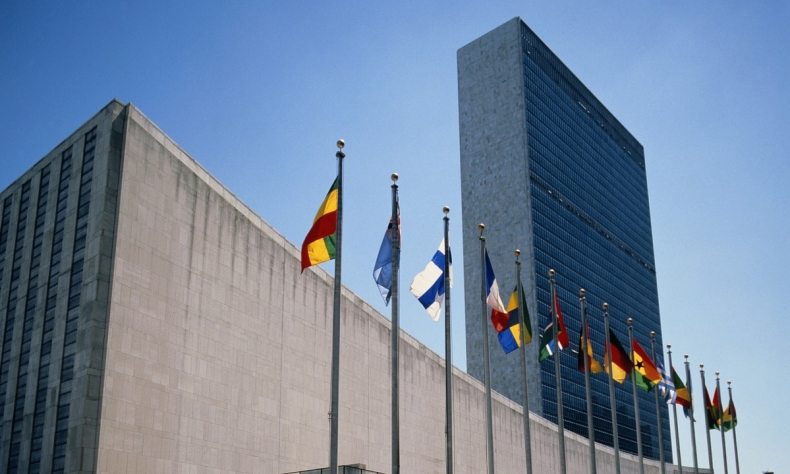Support UN’s Core Role and Safeguard Multilateralism

China believes that the United Nations must bridge all differences and disagreements in the pursuit of a broader and integrated global interest and in the name of humanity as opposed to its domination by one single country.
On Oct. 25, 1971, the United Nations General Assembly passed Resolution 2758, which restored all lawful rights of the People’s Republic of China in the United Nations and transferred it the permanent membership on the United Nations Security Council. The victory came amidst the attempts of some to block it, opening a new era in China’s engagement with the world and affirming the organization’s acceptance of the “One China Policy.”
After World War II, the dream of the UN was to assure a new era of global cooperation and multilateralism so that the horrors, destruction, and instability of the past would not be repeated. It also strived to give every country a voice as well as provide their input on issues which would affect the global community as a whole.
For the first two decades of its history, the People’s Republic of China was isolated from this important global body. However, the 1970s would prove to be a decade of breakthroughs in China’s relationships with the wider world. In 1971, it successfully garnished the support needed to enter the United Nations and take up its rightful place.
Thus, as the text of Resolution 2758 states, the UN recognized “that the representatives of the Government of the People’s Republic of China are the only lawful representatives of China to the United Nations and that the People’s Republic of China is one of the five permanent members of the Security Council,” and that “considering the restoration of the lawful rights of the People’s Republic of China is essential both for the protection of the Charter of the United Nations and for the cause that the United Nations must serve under the Charter.”
The entry of the New China into the United Nations soon ushered in an era of engagement which coincided with China’s reform and opening up to the world, a process of wider integration into the global community and economy, transforming the country into an important stakeholder which understood the need for multilateralism, cooperation, diplomacy, and engagement with the globe.
As a part of the UN, China has engaged in activities which contribute to the broader well-being of the world. This includes extensively funding and participating in operations, such as international peacekeeping and humanitarian programs; utilizing its Security Council role to engage in activities, including counter-terrorism and nuclear non-proliferation; cooperating with UN bodies such as the World Health Organization, including providing vaccines to the global COVAX program; and many more efforts. It has formulated part of its foreign policy built on broader multilateralism – the premise that countries must continue to work together through institutions.
This legacy poses lessons for today. In the face of the increasing uncertainties, and rising hegemonism, unilateralism, power politics, and protectionism, the international community is slowly dividing into blocs, and countries are forced to take sides and draw up lines of Cold War division. As a result, bridges between countries are being destroyed, inciting fear and vilifying open international engagement and ties as threatening. These confrontational attitudes serve to take the world backwards.
China believes that the United Nations must bridge all differences and disagreements in the pursuit of a broader and integrated global interest and in the name of humanity as opposed to its domination by one single country.
In joining the UN, China ultimately moved forward and revolutionized its global role, integrating it into its own vision of progress and development. Even in the midst of challenges today, it is not going back.
 Facebook
Facebook
 Twitter
Twitter
 Linkedin
Linkedin
 Google +
Google +







